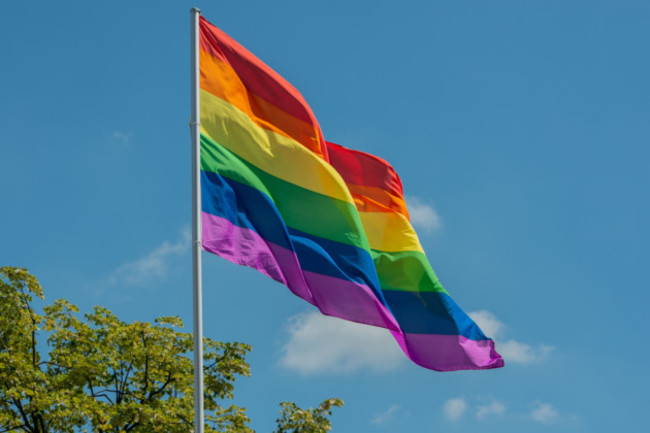IF YOU’RE RELATIVELY well informed (or use Twitter, at the very least), you might have heard some people in the UK talking about the Gender Recognition Act – or GRA for short.
Writers and activists like Shon Faye have been calling on their followers to respond to consultation on the GRA, in an effort to reform it.
Shon tweeted: “If you are someone who follows my feed and have wondered how you could be an ally to the trans community – please consider taking a short amount of time to respond to the consultation on the Gender Recognition Act.”
The deadline to respond to the consultation was 12 noon today, but it’s still important to remain in the know about these things.
What is the Gender Recognition Act?
The Gender Recognition Act (2004) governs how trans people can have their legal identity recognised. Though it was viewed as groundbreaking at the times of its introduction, many aspects of the Act are now largely out of date.
Under the Gender Recognition Act (2004, applicants have to be over 18, diagnosed with gender dysphoria, have lived for at least two years in their acquired gender and “intend to live permanently in their acquired gender until death”.
How does it compare to Ireland and other countries’ legislation?
The Gender Recognition Act (2015) in Ireland allows individuals to apply through the Department of Social Protection for certificates so they can be legally recognised by the State under the gender they identify.
Where a gender recognition certificate is issued, a person’s gender shall from the date of that issue become, for all purposes, the preferred gender. If the preferred gender is the male gender the person’s sex becomes that of a man, and if it is the female gender the person’s sex becomes that of a woman.
The Act provides a process enabling trans people who are over 18 to achieve full legal recognition of their self-identified gender. The process is more difficult for 16-17 year olds, and not possible for those under that age.
Earlier this year, a government-commissioned review proposed recommended a system of gender recognition be introduced for children where parent consent was acquired, third-party support for the child and family, and a straightforward revocation process.
At the end of last year, Germany became the latest country to recognise a third gender for intersex people.
They are already recognised on official documents in Australia, India, New Zealand, Nepal and the US, where the first intersex birth certificate was issued in 2016, reports the BBC.
In May 2017, France’s top appeals court ruled against offering a “neutral” gender designation to a 66-year-old psychotherapist born with neither a penis nor a vagina and officially registered as a man.
The French court said the distinction between male and female was a cornerstone of social and legal organisation, and that recognising a third gender would involve “numerous legislative changes”, the New York Times reported.
What do trans people and trans allies want from reformed legislation?
UK charity Stonewall says it supports a reformed Gender Recognition Act which:
- Requires no medical diagnosis or presentation of evidence for trans people to get their identity legally recognised.
- Recognises non-binary identities.
- Gives all trans people, including 16 – 17-year-olds, the right to self-determination, through a much simpler and more streamlined administrative process.
The current process, means trans people have to go through a series of intrusive medical assessments and long, demeaning interviews with psychiatrists in order to ‘prove’ their gender identity. It requires trans people to have a formal diagnosis of ‘gender dysphoria’, to live in their ‘acquired gender’ for two years, and hand over evidence supporting all of this to a gender recognition panel.
Simply put, a reformed GRA would make the lives of trans people that little bit easier. There’s been a lot of transphobic rhetoric surrounding the consultation, with many insisting there is a debate to be had surrounding transgender people. People’s basic human rights shouldn’t be up for debate though.
With any luck, this consultation will result a more inclusive Gender Recognition Act in the future.










COMMENTS (8)